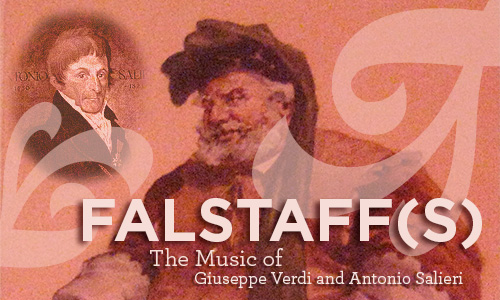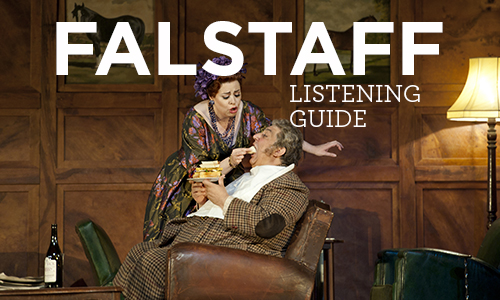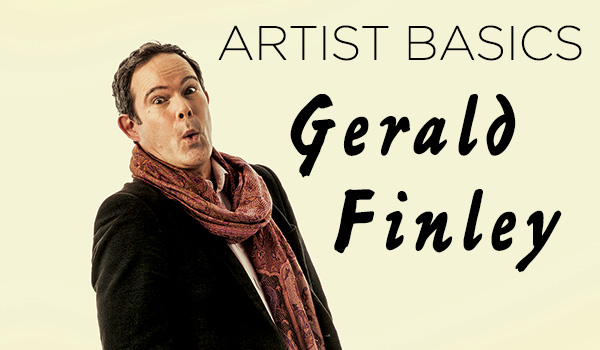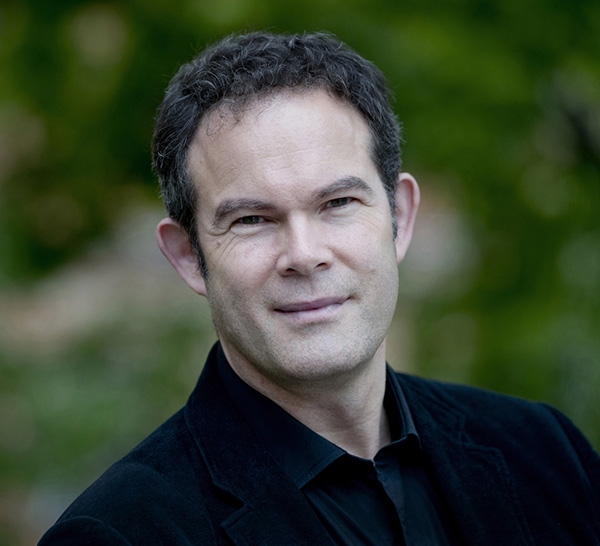-
FALSTAFF(S)
By Kiersten HayPosted in FalstaffBy C. Ian Kyer

In 1995 when American bass-baritone John Del Carlo was preparing to sing the lead in Falstaff at the Schwetzinger Festspiele, he had to do extra training. He had sung Verdi’s Falstaff before but this time was very different, because what he was singing was not the work of Arrigo Boito and Giuseppe Verdi. This Falstaff featured a libretto by Carlo Prospers Defranceschi with music by none other than Mozart’s infamous rival, Antonio Salieri. To Del Carlo’s surprise he found the work both entertaining and musically interesting.The two Falstaffs were both the work of mature and celebrated composers. Verdi’s Falstaff was in fact his 26th and last opera. He had said that he fired his last cartridge with Otello (1887) but in 1889, at age 76, he began to set another libretto based on Shakespeare’s The Merry Wives of Windsor. Verdi and his librettist called it Falstaff, after the lead character in Shakespeare’s play, Sir John Falstaff, and it premiered at Milan’s Teatro alla Scala on February 9, 1893.
[READ MORE] -
Falstaff Listening Guide
By Kiersten HayPosted in FalstaffBy Gianmarco Segato, Adult Programs Manager

Introduction
When Falstaff premiered at La Scala, Milan in 1893, it landed at the centre of a critical controversy raging between two opposing points of view.
On one side, there were those who saw the future of Italian opera as lying within the “Wagnerian” camp; that is, in compositions that veered in the direction of orchestral complexity, constant melodic development, a reduction of the role of the melodic line and, the subordination of music to the text – elements not generally associated with the great Italian bel canto tradition in which melody and the singing line dominated.A second, opposing group of Italian critics asserted that Verdi did actually achieve perfection with Falstaff – that it stood at the summit of his career. They explained away the Wagnerian “problem” by attributing Falstaff’s musical innovation to the internal creative development of Verdi’s mind as opposed to any wholesale adoption of Germanic influences.
So, where does Verdi himself fall in this critical maelstrom? He did make it clear his last opera would be quite different from anything he’d previously written. It was to be the comedy he always wanted to compose and from a musical point of view, Verdi said he wrote it as much for his own amusement as for the public’s.
Verdi’s Falstaff is extremely rich, inventive, and fast-paced; the orchestration is sensitive to every shift in the language of Arrigo Boito’s libretto – so, when an image in the text changes, the music turns on a dime and adopts a different tempo and mood, befitting the tone of the text. Paradoxically, this extreme invention is probably also the reason why, at first, audiences did not embrace this opera in quite the same way as they had with Verdi’s earlier works. There is a fleeting quality about it. Falstaffcontains an abundance of melody, without much repetition; tunes come and go almost before they can be grasped. The immediately memorable, hummable tunes of Rigoletto and La Traviata are no longer foremost on the composer’s agenda.
[READ MORE] -
Artist Basics: Gerald Finley
By Danielle D'OrnellasPosted in Falstaff

Upon first glance, you may be a bit skeptical that the fit baritone who is tackling Mount Kilimanjaro this summer, could convincingly play opera's most famous glutton, but recently appointed Officer of the Order of Canada's Gerald Finley is more than up to the challenge!
What he's doing with us: Gerald Finley returns to the Canadian Opera Company for the first time in over 20 years to make his role debut as the slovenly, hedonistic and hilarious Falstaff in a co-production with Royal Opera House, Covent Garden; Teatro alla Scala; Metropolitan Opera and Dutch National Opera, Amsterdam.
[READ MORE]
